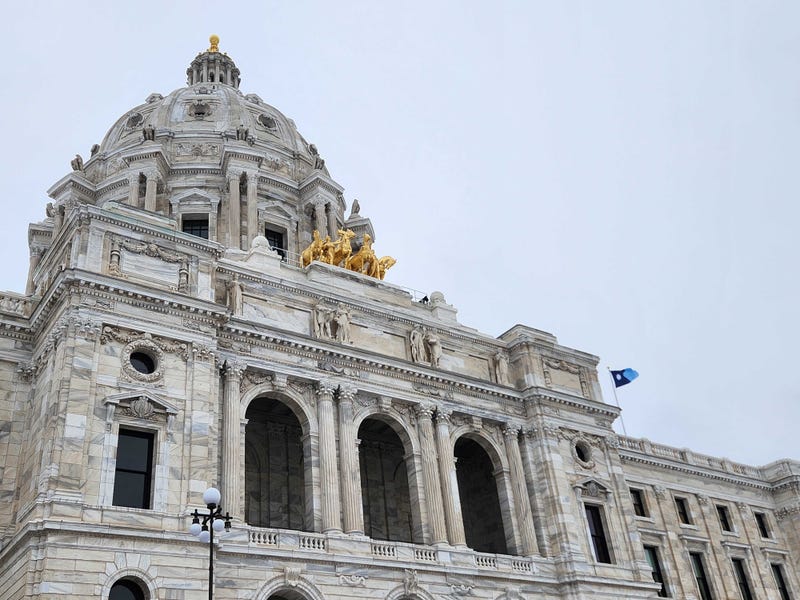
It's the final day of the 2025 Minnesota legislative session - but we're heading for a special session anyway.
The House is equally divided with a Republican speaker, and Senate Democrats have a one-seat edge, making it more difficult to come to agreement as they try to finalize a budget.
WCCO political analyst Blois Olson says on the Sunday Take says there will likely be a special session as Governor Tim Walz (D) works with a divided legislature.
"The final deal will depend on his ability to find agreement because after tomorrow at midnight, Governor Walz is the only person who can reconvene the legislature for a deal," says Olson. "And because of that he gains more leverage."
Olson adds that lawmakers he's been in contact with say there is movement to get their work done on time, but both sides are having difficulty finding common ground as the final hours of the session grind away.
That was confirmed again Monday morning by House Speaker Lisa Demuth (R- Cold Spring) who told the WCCO Morning News with Vineeta Sawkar that finishing on time won't happen. Demuth says they have made progress in key areas, passing bills for housing, veterans, public safety, and judiciary.
"We've really moved along a number of areas," Demuth says. "There's still quite a bit left to go. Some of our conference committees are wrapped and then those bills will come through. So having that work done and pushing through as much as we can before midnight (Monday) is the goal."
When does Demuth think the special session would happen? Could be quickly - if they get enough accomplished Monday.
"The intent would be, hopefully, it would be very brief special session," she tells WCCO. "And it would be great if we could get it done later this week before Memorial Day weekend just so this part could be wrapped up."
One of the biggest issues they still have to overcome is a final agreement on a compromise between legislative leaders ending state health insurance coverage for undocumented adults. The initial agreement would continue to cover children, however.
There are still some House Democrats strongly objecting - even protesting - against the policy last week outside the governor's office.
DFL Representative and Speaker Emerita Melissa Hortman (Brooklyn Park) told WCCO TV's Esme Murphy that it was a hard decision, but had to be done.
"It was a demand by the GOP to settle the budget," Hortman explained. "We fought really hard. We were in a room about 12 hours a day together from about April 30th through May 14th, with Senate Majority Leader Erin Murphy and Governor Walz and me fighting really hard to preserve this health care."
While that's a key issues still, Murphy (DFL- St. Paul) says other work being done in committees continues to hit roadblocks that are slowing progress.
"I think there are a variety of issues that are animating these conference committees, and frankly, a number of the things that were accomplished back in 2023 are the issues that are animating the Republicans, and they're wanting to relitigate the work that happened two years ago," Murphy told the WCCO Morning News. "And that, frankly, is slowing things down."
Demuth describes the work they've gotten done during this session as controversial in places, but necessary in order to balance the state's finances.
"It is a budget that actually delivers to Minnesotans the largest spending cut in state history from biennium to biennium," Demuth explains. "So we had, definitely, record spending over the last two years with that $18 billion surplus, the raising of our taxes and fees over $10 billion, and so we knew that we're looking at a structural imbalance just down the road. So we were really challenged coming together now this year, how do we attack this? We are delivering to. Minnesotans almost $5 billion of spending cuts. It doesn't completely take care of that structural imbalance in four years, but it takes almost 45% of that and handles it."
